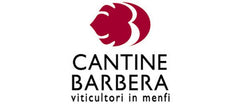- Argentina
- Mendoza
- Austria
- Burgenland
- Kamptal
- France
- Alsace
- Beaujolais
- Bordeaux
- Côtes du Rhône
- Jura
- Languedoc-Roussillon
- Loire Valley
- South-West
- Hungary
- Lake Balaton
- Italy
- Abruzzo
- Alto Adige
- Basilicata
- Emilia-Romagna
- Friuli
- Lazio
- Oltrepò Pavese
- Piedmont
- Puglia
- Sicily
- Tuscany
- Umbria
- Veneto
- Portugal
- Alentejo
- Slovenia
- Goriška Brda
- South Africa
- Stellenbosch
- Spain
- Catalonia
- Galicia
- Rioja
- U.S.
- California
- Oregon
- Washington
- Abbia Nòva
- Azienda Agricola Jasci
- Azienda Agricola Réva Monforte
- Azienda Agricola Tessari
- Azienda Agricola Tornatore
- Bodega Marco Zunino
- Bodegas Puiggros
- Ca' del Monte
- Cantine Barbera
- Cantine Lombardini
- Cantine Paradiso
- Cascina Castlèt
- Chateau de la Grange
- Château Barouillet
- Château Haut Grelot
- Château Les Paruades
- Conti Riccati
- Cordero San Giorgio
- Cortonesi
- Coto de Gomariz
- Domaine André Aubert
- Domaine Baud Père et Fils
- Domaine La Grangette
- Domaine Muré
- Fabulas
- Famille Arbeau
- Fattoria di Petrognano
- Fattoria di Sammontana
- Gilvesy Pincészet
- Kellerei Bozen - Cantine Bolzano
- La Regola
- Maison Idiart
- Marina Danieli
- Markus Altenburger
- Mas Carlot
- Matthias Hager
- Nero Carbone
- Paulo Laureano
- Pearce Family Wines
- Pearce Predhomme
- Poderi 322
- Punset
- Radford Dale
- Raineri
- Stéphane Aviron
- Villa Calcinaia
- Vitas
- Vitivinicola Fangareggi
- Zuani
- Argentina
- Mendoza
- Austria
- Burgenland
- Kamptal
- France
- Alsace
- Beaujolais
- Bordeaux
- Côtes du Rhône
- Jura
- Languedoc-Roussillon
- Loire Valley
- South-West
- Hungary
- Lake Balaton
- Italy
- Abruzzo
- Alto Adige
- Basilicata
- Emilia-Romagna
- Friuli
- Lazio
- Oltrepò Pavese
- Piedmont
- Puglia
- Sicily
- Tuscany
- Umbria
- Veneto
- Portugal
- Alentejo
- Slovenia
- Goriška Brda
- South Africa
- Stellenbosch
- Spain
- Catalonia
- Galicia
- Rioja
- U.S.
- California
- Oregon
- Washington
- Abbia Nòva
- Azienda Agricola Jasci
- Azienda Agricola Réva Monforte
- Azienda Agricola Tessari
- Azienda Agricola Tornatore
- Bodega Marco Zunino
- Bodegas Puiggros
- Ca' del Monte
- Cantine Barbera
- Cantine Lombardini
- Cantine Paradiso
- Cascina Castlèt
- Chateau de la Grange
- Château Barouillet
- Château Haut Grelot
- Château Les Paruades
- Conti Riccati
- Cordero San Giorgio
- Cortonesi
- Coto de Gomariz
- Domaine André Aubert
- Domaine Baud Père et Fils
- Domaine La Grangette
- Domaine Muré
- Fabulas
- Famille Arbeau
- Fattoria di Petrognano
- Fattoria di Sammontana
- Gilvesy Pincészet
- Kellerei Bozen - Cantine Bolzano
- La Regola
- Maison Idiart
- Marina Danieli
- Markus Altenburger
- Mas Carlot
- Matthias Hager
- Nero Carbone
- Paulo Laureano
- Pearce Family Wines
- Pearce Predhomme
- Poderi 322
- Punset
- Radford Dale
- Raineri
- Stéphane Aviron
- Villa Calcinaia
- Vitas
- Vitivinicola Fangareggi
- Zuani
119 products

- Red Wine
- Frappato
- Natural, Sustainable
- Medium Bodied
- 750ml
- 12.5% alc./vol
Cantine Barbera FuoriZona Frappato Terre Siciliane 2023
6 bottles per case
Floral & Spicy
Cantina Barbera is located in Menfi, on the west coast of Sicily. The vineyards are about one mile from the Mediterranean Sea: an uncontaminated deep blue sea, facing South, where low cliffs and sandy dunes create a beautiful environment protected by the Belice River Natural Reservation Fund.
This wine is 100% Frappato, and while Menfi is located outside the historical area where Frappato is traditionally planted, it shares many fundamental characteristics with that terroir: southern exposure, outstanding saline soils lying on compact clays. FuoriZona is a mouthwatering wine with a light ruby
color, soft tannins, a distinct acidity and a graceful body. It smells of cherries, mint, violet and red roses, and has a mouth of pink pepper, blood orange and pomegranate.
Try FuoriZona with tuna, seafood soups, or couscous and grilled vegetables.
About the Winery
Cantine Barbera

Cantina Barbera is located in the Menfi Coast, on the west coast of Sicily. The vineyards are about one mile from the Mediterranean Sea: an uncontaminated deep blue sea, facing South, where low cliffs and sandy dunes create a beautiful environment protected by the Belice River Natural Reservation Fund.
A third generation farmer, Marilena Barbera farms the Inzolia that her grandfather planted in the 20's, just as she attends to the native varietals that are the new frontier of her own generation: Perricone, Nerello, Alicante, Nero d'Avola and Grillo. Marilena makes her wines praticticing organic farming and natural winemaking, while paying utmost respect to Menfi's terroir.
"At the winery, I chose to work only with spontaneous fermentations and to adopt non invasive winemaking practices, in order to respect the unique personality of Sicilian native grape varieties and the beautiful land to which they belong."







